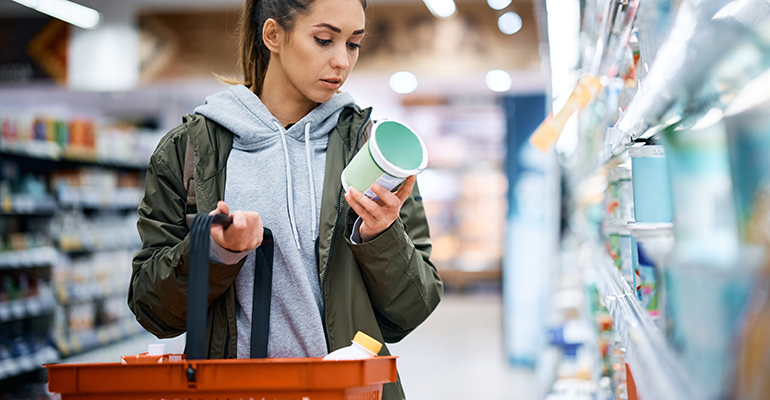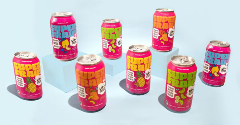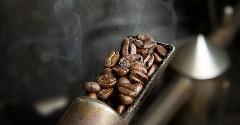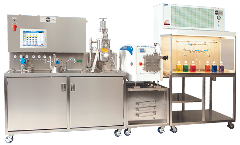Value-seeking US consumers cut back on food spending
2 Jan 2023Cheaper items, smaller sizes, and shorter grocery lists: inflationary effects coupled with a global long-term recession are set to continue shaping food spending habits, according to a recent Rabobank report.
According to a report by RaboResearch Food & Agribusiness, global events over the last 12 months have caused a shift in focus to value, as grocery discounters and warehouse clubs report a surge in popularity.

“Summer marked the start of a challenging trend for many retailers as post-Covid excitement waned and consumers increasingly sought value and affordability among rising prices and deteriorating consumer sentiment,” commented the report’s authors, JP Frossard and Thomas Bailey.
“Inflation is set to remain a problem into 2023. Therefore, we should expect similar spending behaviour to continue for some time.”
Retail acquisitions point to private label opportunities
The report pointed to moves made by the retail industry to meet consumers’ demand for value and affordability.
The authors cited Kroger’s bid to buy Albertsons as a way to generate “significant synergies” in private label brands, vertically integrated manufacturing, and shoring-up of technologies for digital engagement.
Kroger is the second-largest grocer by US market share after Walmart while Albertsons is fourth behind Costco. The deal would inevitably close the gap between Walmart and Kroger.
The $24.6bn (€23.7bn) purchase also adds to Kroger’s online presence as consumers switch between visiting store aisles, ordering home deliveries and curbside pickup.
Report illustrates shifting US consumer habits
In comparison’s to RaboResearch’s July report (The Earnest Files: Inflation Edition), this latest analysis provided further evidence of shifting consumer habits in the US.
The report noted that online groceries were the only subcategory to increase their average transaction size in the quarter (+1% September vs. June).
 © AdobeStock/terovesalainen
© AdobeStock/terovesalainen
RaboResearch noted the increase was a continuation of an upward trajectory seen throughout the year. In absolute terms, average online transaction sizes were second only to those of warehouse clubs. However, order frequency has consistently dropped since April 2022, after a steady 2021.
In terms of total spending, discount grocers and warehouse clubs continued to have the strongest growth amid Q3’s heavy inflation environment.
Discounters have experienced solid growth in visits over the past six months (+6% YOY) as consumers look for value, the report highlighted. Warehouse clubs followed as the only other retailer subcategory with gains in visits (+5%), although growth was lower than in the first half of the year.
Meanwhile online, premium & natural, and big box stores – in that order – have been impacted the most.
Transactions at physical grocery stores decreased 2% in September compared to September 2021, when Covid restrictions were still in place.
Economising on groceries to cope in current climate
In addition to focus on value, the third quarter saw consumers prefer lower-priced items, cut out items from shopping lists, and selected smaller sizes.
 © AdobeStock/SkyLine
© AdobeStock/SkyLine
Frossard and Bailey noted anecdotally that they have heard retailers shifting formats to smaller, more affordable sizes. Consequently, the average transaction was $62.98 (€60.46) in September, from $63.75 (€61.19) in June.
“This 1.2% decline comes despite a 2.8% inflation in that period,” the report stated. “Higher prices typically mean higher average transactions, but the current rate at which consumers are cutting spending is more than offsetting these higher prices.”
Other findings revealed that discount grocers had the lowest drop in basket size in the quarter (-0.4%). This category had with the highest increase year-on-year (+11% vs. September 2021).
“These numbers show discounter clients manage to keep items on their shopping lists,” the report said. “On the other extreme of the value-proposition range, premium & natural stores grew baskets by only 1% in the year.”
Related news

Opportunities grow for lower-caffeine coffee
23 Dec 2022
Many consumers want the mental focus of caffeine without the jitters, prompting a wave of product development such as “half caffeine” ground coffee or ready-to-drink (RTD) cold brew blended with relaxing botanicals.
Read more
Superfrau upcycles liquid whey for energy drinks
22 Dec 2022
US company Superfrau turns surplus whey into sustainable, upcycled-certified dairy products for the recovery drinks market.
Read more
Swedish food agency: One in 10 coffee brands contain excess acrylamide
7 Dec 2022
New findings from the Swedish Food Agency have revealed three of 29 coffee products sampled contained acrylamide above limits, reinforcing the link between levels and degree of roasting.
Read more
Editor’s choice: Our roundup of the latest women’s health products around the world
2 Dec 2022
From botanicals to combat menopause symptoms to a hydration powder for mothers-to-be, here is our roundup of the most innovative new product launches within women’s health.
Read more
The prize no brand wants to win: 2022’s most misleading products
28 Nov 2022
Food industry watchdog Foodwatch is asking consumers to vote for 2022’s most misleading product. A high-sugar vitamin water and “artisan” salad made with artificial additives are among the nominees.
Read more
enduracarb®: A science-backed trehalose ingredient for athletic endurance
24 Nov 2022
enduracarb® is a science-backed, slow-acting carbohydrate that can power athletes’ performance. Produced using a high-purity production process, it is suitable for a wide variety of applications.
Read more
China bans celebrity endorsement of health and formula foods
22 Nov 2022
China is to ban celebrity endorsement or advertising of certain products, completely banning high profile figures with “lapsed morals” as the country attempts to drive society towards “core socialist values”.
Read more
MicroThermics’ Formulators Guide to Process Selection for Plant-Based Beverages
15 Nov 2022
Plant-based beverages & products are mainstream! Come to FIE booth 4D122 & read our whitepaper to see how processing in the lab at commercial HTST & UHT conditions gets you to market faster for less!
Read more
PlantGuard™: Natural preservation solutions for clean-label products
11 Nov 2022
To respond to consumer demand for naturality and clean labels, Prinova has developed PlantGuard™, a 100% plant-based range which preserves the flavour, colour, and freshness of foods and beverages.
Read more
Give your fermented protein drinks a clear head start
10 Nov 2022
Fermented protein beverages are rising in popularity as more consumers make efforts to strengthen their health and wellbeing. Made for the ready-to-drink segment, products such as kombucha and drinking yoghurt are gaining traction as healthier alternat...
Read more